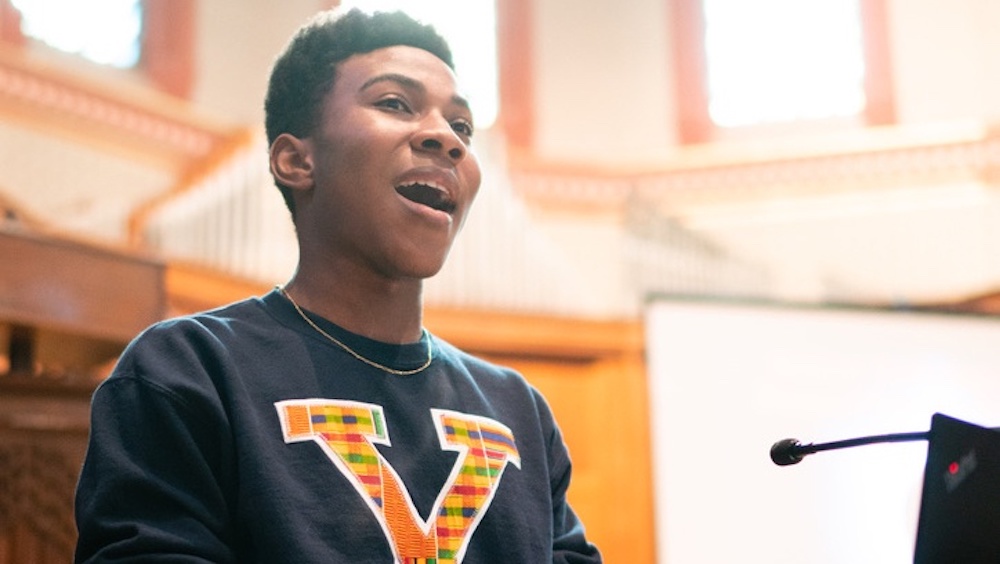If you’re interested in sharing your opinion on any cultural, political or personal topic, create an account here and check out our how-to post to learn more.
Opinions are the writer’s own and not those of Blavity's.
____
When I think of similarities between Juneteenth and Independence Day, I realize the same abstract concepts — history, celebration, freedom — ground both observances. But while the same symbolic themes exist at the heart of the two holidays, the events they memorialize exemplify a tension between symbolism and reality.
Independence Day was first celebrated July 4, 1777, to commemorate the United States’ declaration of freedom from the British empire. Yet during that time, Black Americans were enslaved and could not celebrate their own personal freedom.
“What, to the American slave, is your 4th of July?” Frederick Douglass famously said. “I answer; a day that reveals to him, more than all other days in the year, the gross injustice and cruelty to which he is the constant victim.”
Juneteenth came into existence almost a century later, on June 19, 1866, to commemorate the end of slavery and the first step on a rocky road towards equality for Black Americans. Unlike Independence Day, Juneteenth was not marred by hypocrisy. However, the reality of the situation in 1866 was still far from what the holiday was meant to represent. Black Americans, in pockets around the country, remained enslaved until the 1960s. To this day, we have yet to reach true equality in this country.
In the digital age, these facts are more accessible than ever before. My generation, Gen Z, is hyper-aware of the historical truth behind these two holidays — the hypocrisy of one, the yearning hope of the other.
My generation also has ideas for how to reconcile that divide.
As the common sentiment goes, to solve a problem, you first have to identify it. So, in practice, to approach this problem we must first become students of the past. While I myself am a History major at Yale University studying social change and social movements, I recognize that not everyone has access to the same resources — especially considering that I am the institution’s first Black student-body president.
But thanks to Made By Us, a coalition of over 100-plus history and civics institutions across the country, and the Gen Z social enterprise Civics Unplugged, the long-standing barriers to a comprehensive historical education are finally toppling down. The two organizations have teamed up to create a new celebration between June 19 and July 4 called the Civic Season.
15 days sit between Juneteenth and Independence Day. Civic Season bridges that gap, serving as a period of contemplation, education and planning for the future. The celebration calls on us to rewind, reflect and reimagine. That will look different for everyone. For some, it will consist of reading books and watching educational videos online. For others, it will be a continuation of their existing organizing, protesting and advocacy efforts. Regardless, no matter who you are, where you live or what you know, you’re welcome to join a community of young people learning and engaging with history and civics during this new annual tradition.
A key to reconciling the divide between our countries' promises and practices lie in the words of Amanda Gorman, the 23-year-old author of "The Hill We Climb," which she performed on the steps of the U.S. Capitol during President Biden’s Inauguration just weeks after rioters led an insurrection in the same location. In reference to our national identity, Gorman says that “being American is more than a pride we inherit, it's the past we step into and how we repair it.”
My generation inherited overly-commercialized Independence Day celebrations, uncritical of the holiday’s disturbing history. We also inherited Juneteenth celebrations that are often overlooked by mainstream institutions, held against a backdrop of injustice and suffering. But as Gorman puts it, using the present to repair the past and forge a better future is what being an American is all about — and with the 250th anniversary of the Declaration of Independence on the horizon, this mission takes on new urgency.
History. Celebration. Freedom. Up until now, Independence Day has suffered from the striking double-standard with which it regards national freedom and the freedoms of Black Americans. Up until now, Juneteenth has yet to receive proper reverence, and issues faced by descendants of slaves — like reparations and voting rights — have yet to be properly addressed. Though we didn’t choose to inherit these legacies, it is up to our generation to fix them. Through Civic Season, we can learn the history of the issues and then take action to ensure the symbolism of July 4th and Juneteenth are congruent with their celebrations.
____
Kahlil Greene is Yale's first Black student-body president.
